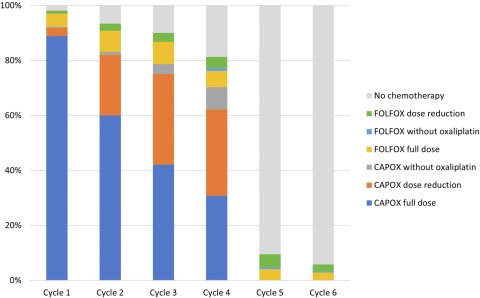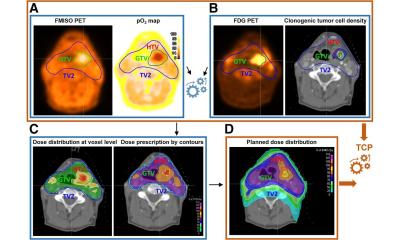News • Combined chemo and radiotherapy
Promising treatment for rectal cancer to avoid surgery
A new treatment for locally advanced rectal cancer shows favourable results in that surgery can sometimes be avoided completely. It also reduces the risk of recurrence.

Image source: Uppsala University
The method has been confirmed as effective in a comprehensive study conducted at Uppsala University and published in eClinicalMedicine.
“The tumour disappears completely more often, thereby increasing the chance of avoiding surgery and retaining normal rectum and rectal function. Moreover, there are fewer metastases,” says Bengt Glimelius, Professor of Oncology at Uppsala University and Senior Consultantat Uppsala University Hospital, about the new method.
Rectal cancer affects around 2,000 people in Sweden every year. Of these, a third have a high risk of recurrence. When a person is diagnosed with rectal cancer, part of the bowel is often removed, which could lead to the need for a stoma or problems controlling one’s bowels. Patients often first receive radiotherapy or a combination of radiotherapy and concurrent chemotherapy for five weeks, followed by surgery and usually an additional round of chemotherapy for up to six months.
A study conducted by Uppsala University in everyday healthcare shows that it is possible to double the chance of eliminating the need to surgically remove part of the bowel if all radiotherapy and chemotherapy are given first and then the patient undergoes surgery, if necessary. “If the tumour disappears completely during treatment, surgery is not required. This means that the rectum is preserved and the need for a stoma and a new rectum is eliminated. When part of the rectum is surgically removed, the new rectum does not quite understand that it should be able to refrain from frequently sending a signal to the brain that you need to use the toilet,” says Bengt Glimelius.
A large number of doctors, researchers and research nurses have contributed to the study. Patient data was collected for a large number of patients via the Swedish Colorectal Cancer Registry (SCRCR), with 461 patients included.

Image source: Glimelius B et al., eClinicalMedicine 2024 (CC BY 4.0)
Locally advanced rectal cancer has traditionally been treated with a combination of radiotherapy and chemotherapy, followed by surgery and further chemotherapy. Four years ago, a randomised study showed that an alternative approach of one week of radiotherapy followed by just over four months of chemotherapy resulted in more tumours disappearing completely and fewer having distant metastases. Later on, however, slightly more local recurrences were observed. Uppsala was the first region to choose to introduce this treatment, but with a shortened chemotherapy period of three months. Several other regions later followed suit.
The new study confirms the results of the previous randomised study, but also that the noted increase in local recurrences was not observed here. “With the old treatment, the randomised study failed to find any tumour in 14% of patients who underwent surgery. The new model doubled that figure to 28%. The new Swedish study had the same results, but without an increase in local recurrence rate after almost five years of follow-up. It is important to show that experimental treatments also work in everyday healthcare,” says Bengt Glimelius.
The study was partly funded by the Swedish Cancer Fundation.
Source: Uppsala University
15.08.2024





